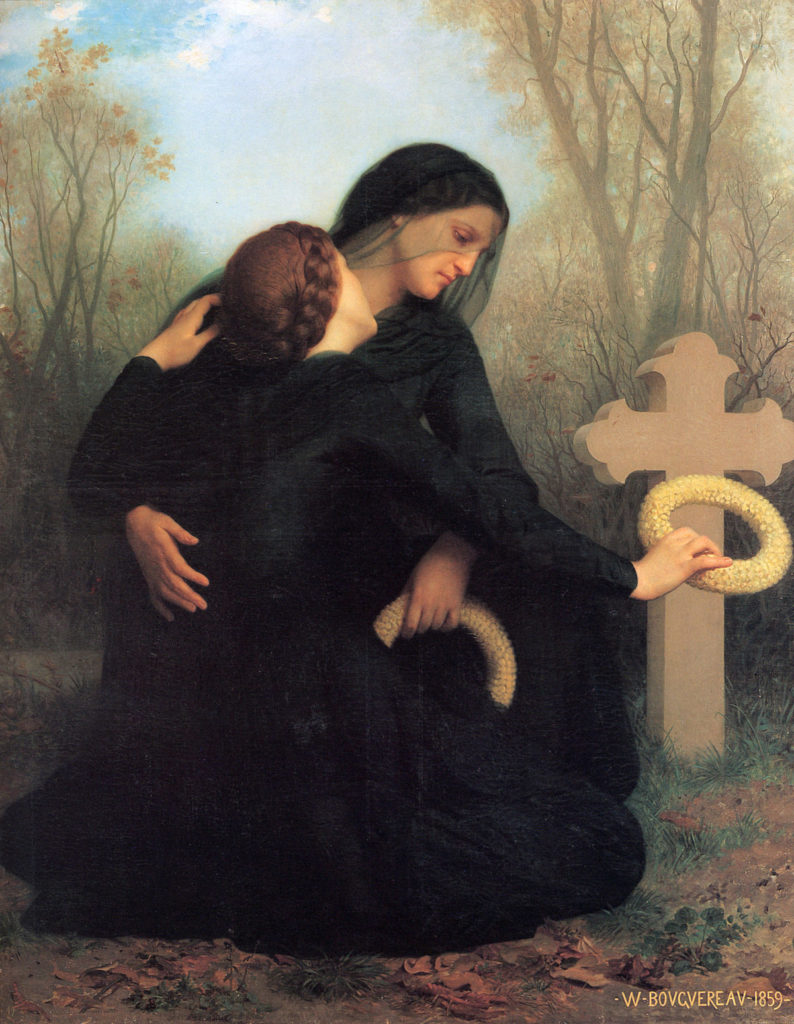
All Souls’ Sunday
For All Souls’ Sunday (also know as All Saints’ Sunday) I post one of Malcolm Guite’s remarkable sonnets. I’ve shared several of Guite’s poems over the years, and for today’s essay dove into his Wikipedia entry to discover more about him. I learned that he is an Anglican priest, a singer-songwriter, and an academic who sees his poetry and his Christianity as inextricably entwined.
Although Guite strayed from his religious upbringing in college by falling under the secular spell of B. F. Skinner’s psychological behaviorism, Becket’s theatre of the absurd, and Sartre’s existentialism, he returned to Christianity after his encounter with John Keats and Percy Shelley. The beauty of their verse inspired him to become a poet, and one reviewer has written of him, “Guite helps us see clearly and deeply how poetry allows us to know truth in a different but complementary way to propositional, rational argument.”
The poet says he has been most influenced by Seamus Heaney, T. S. Eliot, and George Herbert, and he cites Herbert’s “Bitter-Sweet” as one of his favorite poems:
Ah, my dear angry Lord,
Since thou dost love, yet strike;
Cast down, yet help afford;
Sure I will do the like.
I will complain, yet praise;
I will bewail, approve;
And all my sour-sweet days
I will lament and love.
Like Herbert, Guite practices theology through poetry. (See my post on this Anglican practice here.) About “Bitter-Sweet,” Guite writes that
what I see Herbert saying in that poem is that we take our passions, and sometimes our faults and our brokenness and our stains, and we let God anneal [slowly cooling hot glass, thereby making it durable] his story. So there’s some point in which we become a window of grace.
The explanation helps us understand “All Souls,” in which we receive Christ’s reflected light from souls we never knew, and also from souls that we “shunned and shamed.” Guite assures us,
They stand beside us even as we grieve,
The lone and left behind whom no one claimed,
Unnumbered multitudes…
Although they are “plain in our sight and far beyond our seeing,” Christ “weaves them with us in the web of being.”
All Souls
Though Satan breaks our dark glass into shards
Each shard still shines with Christ’s reflected light,
It glances from the eyes, kindles the words
Of all his unknown saints. The dark is bright
With quiet lives and steady lights undimmed,
The witness of the ones we shunned and shamed.
Plain in our sight and far beyond our seeing
He weaves them with us in the web of being
They stand beside us even as we grieve,
The lone and left behind whom no one claimed,
Unnumbered multitudes, he lifts above
The shadow of the gibbet and the grave,
To triumph where all saints are known and named;
The gathered glories of His wounded love.

